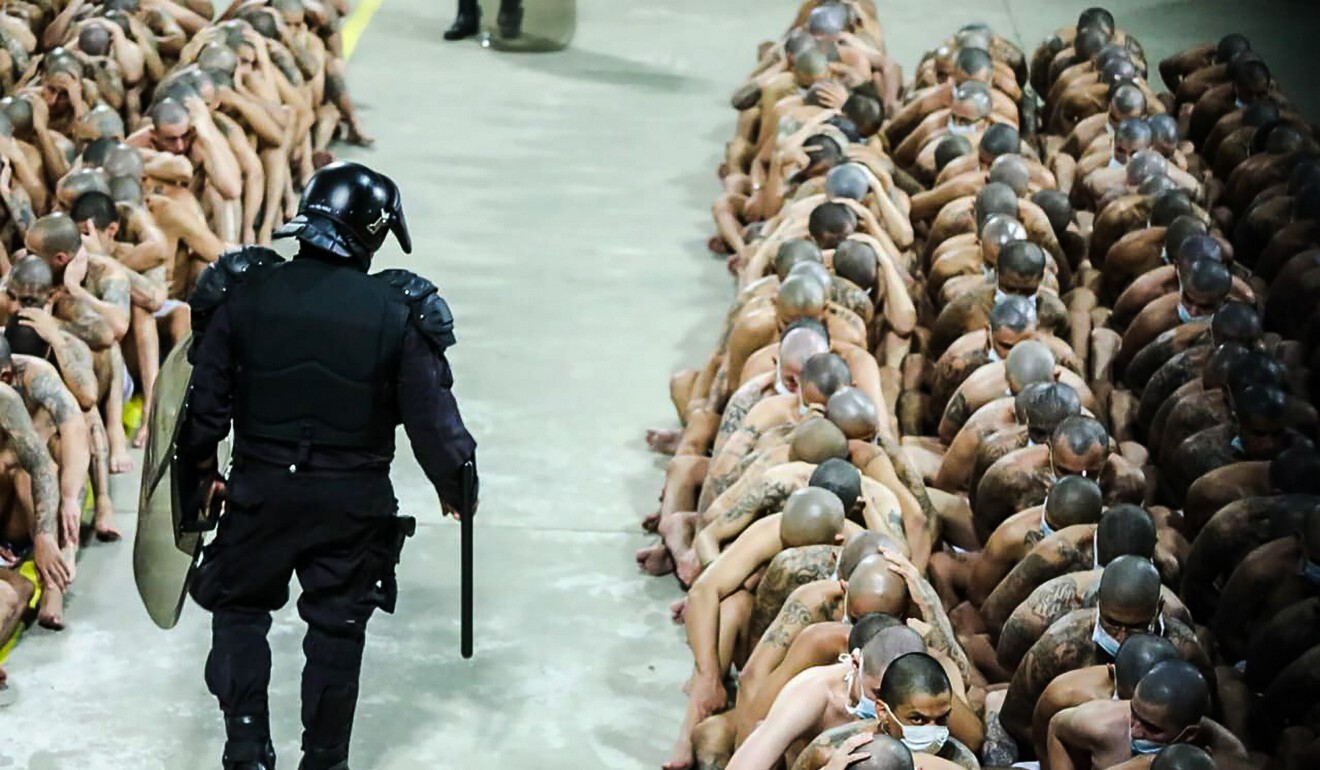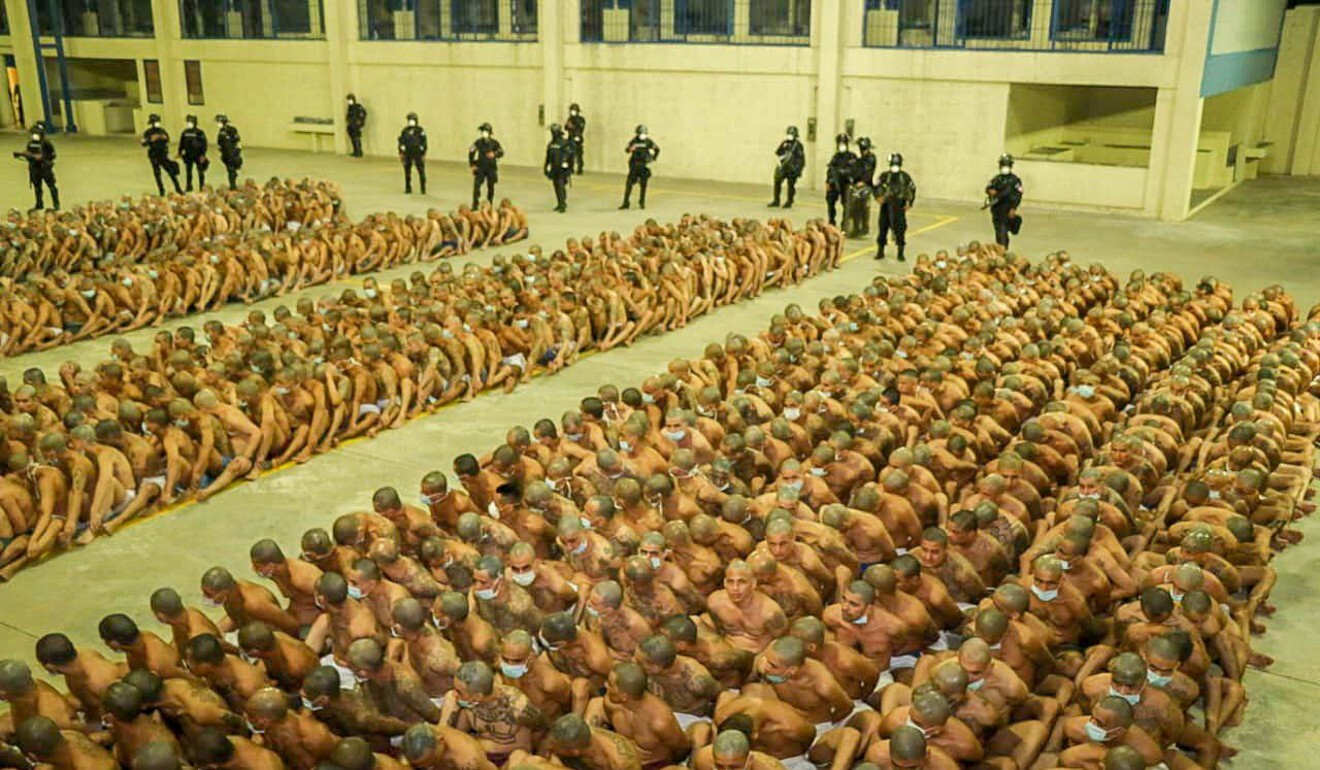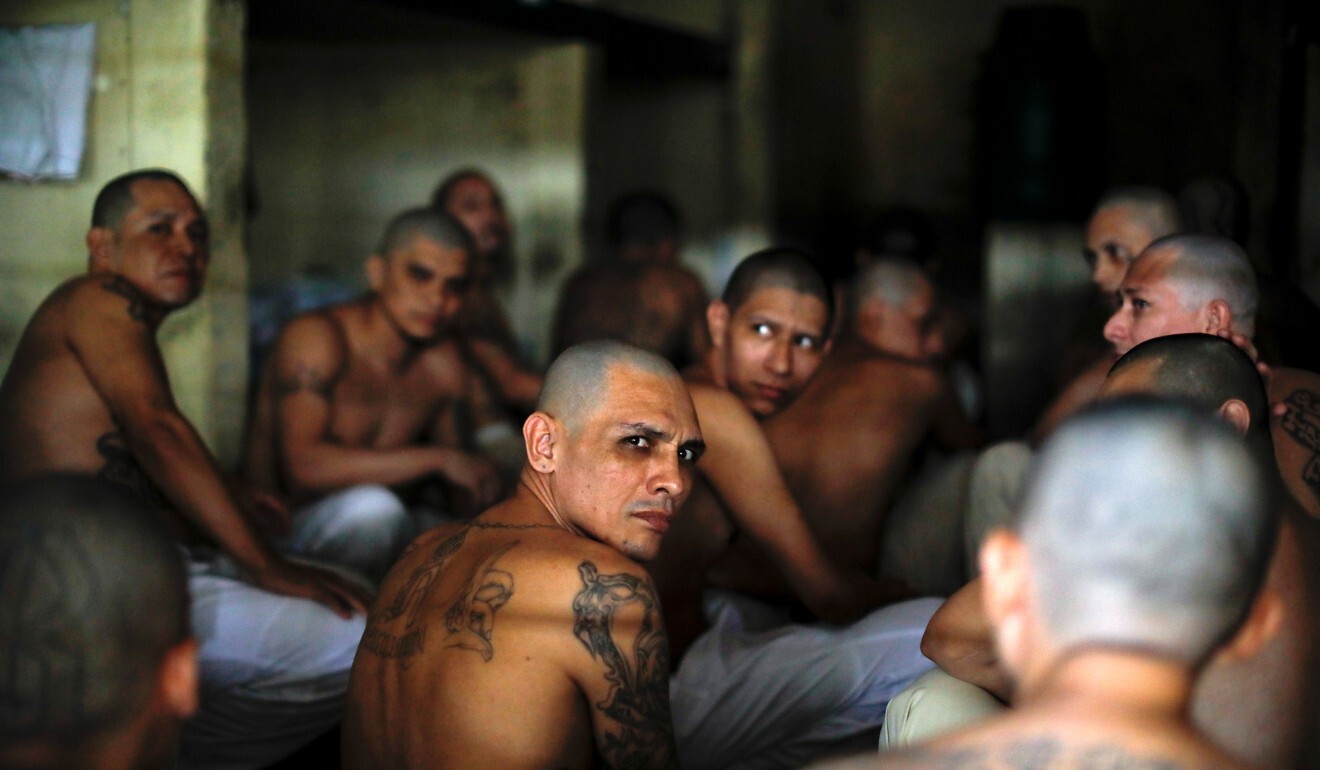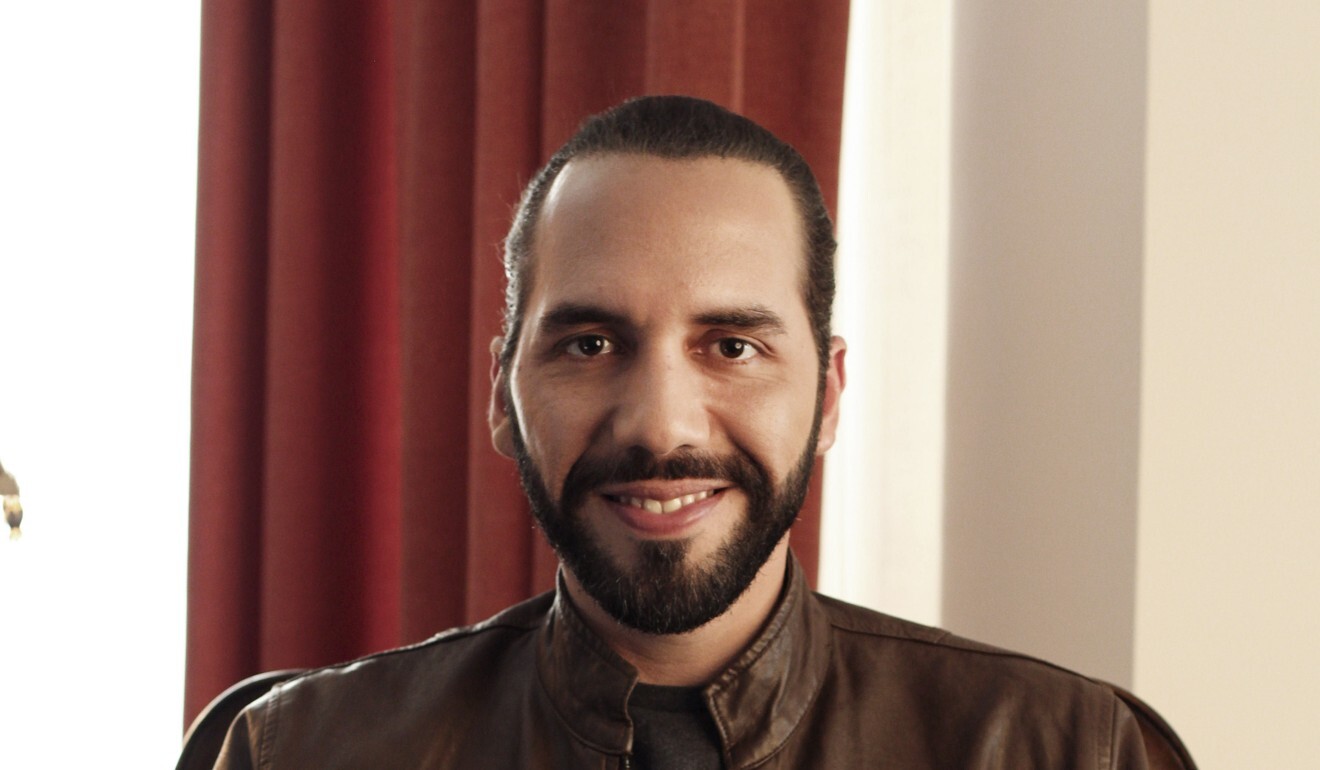
‘Dehumanising’ photos of prisoners in El Salvador horrify human rights groups
- Photos of tightly packed prisoners in El Salvador shock human rights defenders
- President ordered crackdown on gang members blamed for spike in homicides

Right groups condemned El Salvador’s president for releasing startling photos of hundreds of jailed gang members stripped to underwear and pressed together in formation, part of a punishment for an outbreak of violence.
The images published at the weekend on the Twitter account of President Nayib Bukele’s office stood in contrast to social-distancing measures around the world, including an obligatory home quarantine in El Salvador to stop the new coronavirus spreading.
They were followed by orders from Bukele to place members of gangs, including the notorious MS-13, in sealed, steel boxlike cells and permission to use lethal force against gang members on the streets.
Bukele’s latest action follows controversy over his disregard for Supreme Court rulings that he should uphold the constitution and his recent use of the military to intimidate Congress.

Jose Miguel Vivanco, the executive director of Human Rights Watch for the Americas, said El Salvador risked sliding into autocracy without reprobation from global powers.
“We have the duty to make sure that El Salvador does not become another dictatorship,” Vivanco said.
“The only way to stop this is to have a strong reaction by the international community,” Vivanco said, noting a lack of public criticism from the US government or the European Union after recent rights violations.
Bukele has previously shrugged off criticism from human rights group and political opponents, saying it his duty to protect Salvadorans, and describing his predecessors as corrupt.

He enjoys strong poll ratings in the country of 6.5 million people, which has been terrorised by street gangs since shortly after the end of its civil war in 1992.
The government posted the photos showing rows and rows of prisoners sitting tightly packed, with their hands behind their backs, as police officers in riot gear looked on.
Some 12,862 gang members are incarcerated in El Salvador, according to prison authorities.
Amnesty International’s chief media officer for the region calling the pictures “dehumanising” on Twitter.
“[The photos] bring to mind imagery from some of the darkest moments in human history,” Duncan Tucker tweeted.
Salvadoran president @nayibbukele is having gang members sealed in their cells with members of rival gangs, who have historically been kept apart in prisons to avoid massacres https://t.co/yq5aiNg5Yc
— Duncan Tucker (@DuncanTucker) April 27, 2020
Vivanco said Human Rights Watch had already called on the Organisation of American States to consider invoking the Inter-American Democratic Charter in El Salvador.
The charter is invoked when countries in the Americas are considered to have veered from the democratic path.
Bukele authorised the use of lethal force by police and military against gang members on Sunday, after dozens of people were murdered in the most violent weekend since he took office last year.
“We are going to make sure the gang members who committed these killings regret having made this decision for the rest of their lives,” Bukele told his security cabinet on Monday.
Authorities attribute the spate the killings of civilians and some gang members to the gangs seeking to show their strength. Some arrests have been made but nobody has been tried.

On a tour of the Izalco maximum security prison with government officials, Reuters witnesses saw workers soldering metal sheets onto prisoners’ cell doors.
The president also ordered members of rival gangs into shared cells in a bid to break up lines of communication between members of the same gangs.
“From now on, all the gang cells in our country will remain sealed. They will no longer be able to see outside the cell,” Bukele said.

“This will prevent them from using signs to communicate with the hallway. They will be inside, in the dark, with their friends from the other gangs.”
Previously, the murder rate in El Salvador – which used to be the highest in the world – had dropped sharply. February was the month with the least murders since the end of the civil war in 1992, according to Bukele.
Additional reporting by DPA